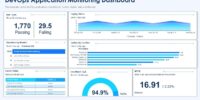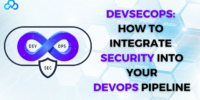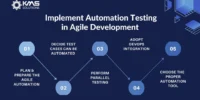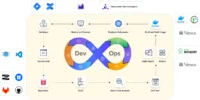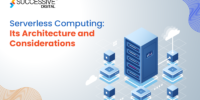Containerization has revolutionized the way applications are developed, deployed, and managed. Docker, a leading containerization platform, has become synonymous with container technology. Whether you’re a seasoned developer or new to the world of containers, mastering Docker is essential for streamlining your development workflow. In this guide, we’ll explore quick tips for Docker success and efficient containerization.
1. Understand the Basics of Docker
Before diving into Docker, it’s crucial to understand the fundamentals. Familiarize yourself with key concepts such as containers, images, Dockerfile, and Docker Compose. grasp how containers differ from virtual machines and how Docker facilitates lightweight and portable application deployment.
2. Create Efficient Dockerfiles
The Dockerfile is a blueprint for building Docker images. Craft efficient Dockerfiles to create lightweight and optimized images. Minimize the number of layers, leverage caching strategically, and only include essential dependencies. Well-optimized Dockerfiles contribute to faster build times and smaller image sizes.
3. Use Docker Compose for Multi-Container Applications
Docker Compose simplifies the orchestration of multi-container applications. Define your application stack, services, and configurations in a docker-compose.yml file. This allows you to manage complex setups effortlessly, ensuring consistency across development, testing, and production environments.
4. Leverage Volumes for Persistent Data
Containers are ephemeral, and data persistence can be challenging. Use Docker volumes to persist data outside the container. Volumes enable sharing data between containers, backing up critical information, and maintaining stateful applications. Understand the different types of volumes and choose the appropriate one for your use case.
5. Secure Your Docker Environment
Security is paramount in containerization. Keep your Docker environment secure by regularly updating Docker and its dependencies. Follow best practices for securing containerized applications, such as limiting container capabilities, using user namespaces, and scanning images for vulnerabilities using tools like Clair or Trivy.
6. Monitor and Troubleshoot with Docker Logs
Effectively monitor your Docker containers by utilizing Docker logs. Logs provide valuable insights into container behavior and help identify issues. Familiarize yourself with Docker’s logging mechanisms, and consider integrating external log management tools for a more comprehensive monitoring solution.
7. Optimize Networking in Docker
Networking plays a crucial role in container orchestration. Understand Docker’s networking models, such as bridge networks, overlay networks, and host networks. Configure network settings according to your application’s requirements, and leverage Docker’s built-in DNS resolution for seamless communication between containers.
8. Explore Docker Registry and Image Management
Effectively manage Docker images using Docker Registry, a centralized repository for storing and distributing Docker images. Docker Hub is a public registry, but for private projects, consider using Docker’s official registry or other solutions like Amazon ECR or Google Container Registry. Implement versioning and proper image tagging to manage image changes efficiently.
9. Backup and Restore Docker Containers
Backup and restore procedures are crucial for maintaining data integrity and availability. Implement backup strategies for your Docker containers and associated data. Explore tools like Duplicity, Velero, or custom scripts to automate backup processes and streamline disaster recovery.
10. Stay Informed About Docker Ecosystem Updates
The Docker ecosystem is dynamic, with frequent updates, new features, and enhancements. Stay informed about Docker releases, follow official Docker blogs, and participate in community forums. Being up-to-date ensures you can leverage the latest features and security patches for an optimized containerization experience.
Conclusion
Mastering Docker is a continuous learning process that pays off in terms of efficiency, scalability, and portability. Understand Docker basics, create efficient Dockerfiles, leverage Docker Compose, use volumes for data persistence, secure your Docker environment, monitor and troubleshoot with logs, optimize networking, explore Docker Registry, implement backup strategies, and stay informed about ecosystem updates. By incorporating these quick tips into your Docker workflow, you’ll be well-equipped to navigate the containerization landscape and ensure success in your development projects.

